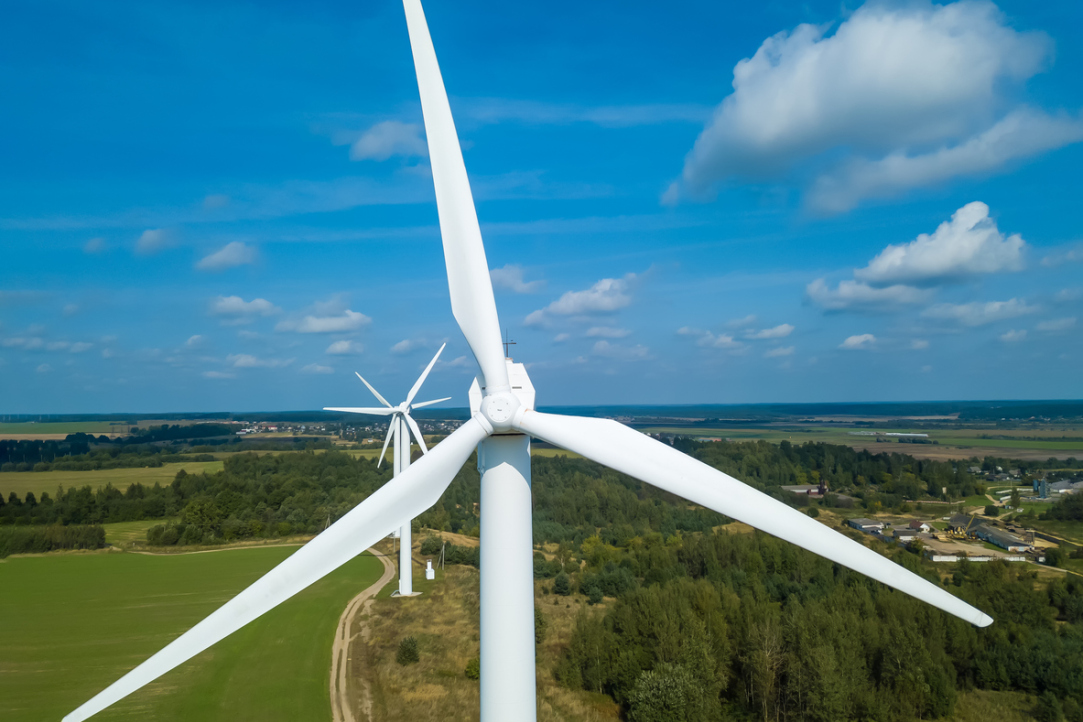Green Energy Patents Boost Company Profitability

For nuclear energy, the increase can be up to 1.6%
An ESG strategy—Environmental, Social, and Corporate Governance—not only helps preserve the environment but can also generate tangible income. Thus, the use of renewable energy sources (RES) and green technologies in the energy sector enhances return on investment and profitability. In contrast, higher CO2 emissions result in lower financial performance. This has been demonstrated in a collaborative study by the HSE Faculty of Economic Sciences and the European University at St. Petersburg. Their findings have been published in Frontiers in Environmental Science.
In recent years, green energy technologies have made significant advancements. Governments and businesses invest hundreds of billions of dollars in developing renewable energy sources (RES), nuclear energy, and electric transportation. In 2020, their share accounted for 40% of all investments in the energy sector, totalling $400 billion. In the European Union, spending on green energy is 3.5 times higher than on traditional energy. Meanwhile, China has reduced investments in the gas and oil sectors by 40% to focus on developing RES. Increasingly, research demonstrates that adopting green technologies can have a positive impact on company profitability.
Elena Makeeva, Associate Professor at the HSE Faculty of Economics, Konstantin Popov, Research Assistant at the HSE Corporate Finance Centre, and Olga Teplova, Research Fellow at the European University at St. Petersburg, have investigated how investments in green energy impact the profitability of energy companies in the BRICS countries. The researchers studied 63 largest firms in the BRICS countries and examined their key financial performance indicators, including return on assets (ROA), return on invested capital (ROIC), and market capitalisation.
CO2 emissions and patents related to three primary types of green energy—renewable energy technologies, combustion technologies with mitigation potential, and nuclear energy technologies—were considered as independent variables. China leads among BRICS member countries in all types of patents, with its share reaching 94% for patents in the field of renewable energy and 89% for patents related to hybrid energy systems.

The model also incorporated the company's revenue and investments, along with the per capita GDP of the company's home country, as controls. The authors constructed several models to establish a connection between investments in green technologies, carbon dioxide emissions, and the return on assets and investments, and market capitalisation of companies.
They have found that higher CO2 emissions significantly reduce company profitability and negatively affect market capitalisation: a 1% increase in carbon dioxide emissions results in nearly a 2% decrease in company profitability. The return on investment decreases even further, by 5% to 7%, along with a decrease in market capitalisation. Conversely, the more 'green energy' patents a company registers, the greater its profitability. The return on assets increases by 0.7% on average, and patents in the field of nuclear energy result in the largest increase of up to 1.6%. The return on investment has been found to increase by 2% to 3%. The researchers note that patents for renewable energy technologies contribute significantly only to ROIC, whereas combustion technologies with mitigation potential and nuclear technologies positively influence all financial performance indicators of companies. The authors also advocate for further advancements in nuclear power technology, since a nuclear power plant is a powerful, stable, and low carbon energy source with a long operational lifespan.
However, it should be noted that investments in green energy typically involve long-term commitments and do not yield immediate financial returns. This study demonstrates that businesses prioritising social and environmental responsibility in their operations can eventually achieve significant profits.

Associate Professor, Faculty of Economics, HSE University
The development of green energy should be a priority for BRICS countries, and investing in infrastructure and improving legislation are crucial factors for an expansion of low-carbon technologies in the electric power industry.
See also:
Scientists Rank Russian Regions by Climate Risk Levels
Researchers from HSE University and the Russian Academy of Sciences have assessed the levels of climate risks across Russian regions. Using five key climate risks—heatwaves, water stress, wildfires, extreme precipitation, and permafrost degradation—the scientists ranked the country’s regions according to their need for adaptation to climate change. Krasnoyarsk Krai, Irkutsk Region, and Sverdlovsk Region rank among the highest for four of the five climate risks considered. The study has been published in Science of the Total Environment.
HSE Researchers Teach Neural Network to Distinguish Origins from Genetically Similar Populations
Researchers from the AI and Digital Science Institute, HSE Faculty of Computer Science, have proposed a new approach based on advanced machine learning techniques to determine a person’s genetic origin with high accuracy. This method uses graph neural networks, which make it possible to distinguish even very closely related populations.
HSE Economists Reveal the Secret to Strong Families
Researchers from the HSE Faculty of Economic Sciences have examined the key factors behind lasting marriages. The findings show that having children is the primary factor contributing to marital stability, while for couples without children, a greater income gap between spouses is associated with a stronger union. This is the conclusion reported in Applied Econometrics.
Fifteen Minutes on Foot: How Post-Soviet Cities Manage Access to Essential Services
Researchers from HSE University and the Institute of Geography of the Russian Academy of Sciences analysed three major Russian cities to assess their alignment with the '15-minute city' concept—an urban design that ensures residents can easily access essential services and facilities within walking distance. Naberezhnye Chelny, where most residents live in Soviet-era microdistricts, demonstrated the highest levels of accessibility. In Krasnodar, fewer than half of residents can easily reach essential facilities on foot, and in Saratov, just over a third can. The article has been published in Regional Research of Russia.
HSE Researchers Find Counter-Strike Skins Outperform Bitcoin and Gold as Alternative Investments
Virtual knives, custom-painted machine guns, and gloves are common collectible items in videogames. A new study by scientists from HSE University suggests that digital skins from the popular video game Counter-Strike: Global Offensive (CS:GO) rank among the most profitable types of alternative investments, with average annual returns exceeding 40%. The study has been published in the Social Science Research Network (SSRN), a free-access online repository.
HSE Neurolinguists Reveal What Makes Apps Effective for Aphasia Rehabilitation
Scientists at the HSE Centre for Language and Brain have identified key factors that increase the effectiveness of mobile and computer-based applications for aphasia rehabilitation. These key factors include automated feedback, a variety of tasks within the application, extended treatment duration, and ongoing interaction between the user and the clinician. The article has been published in NeuroRehabilitation.
'Our Goal Is Not to Determine Which Version Is Correct but to Explore the Variability'
The International Linguistic Convergence Laboratory at the HSE Faculty of Humanities studies the processes of convergence among languages spoken in regions with mixed, multiethnic populations. Research conducted by linguists at HSE University contributes to understanding the history of language development and explores how languages are perceived and used in multilingual environments. George Moroz, head of the laboratory, shares more details in an interview with the HSE News Service.
Slim vs Fat: Overweight Russians Earn Less
Overweight Russians tend to earn significantly less than their slimmer counterparts, with a 10% increase in body mass index (BMI) associated with a 9% decrease in wages. These are the findings made by Anastasiia Deeva, lecturer at the HSE Faculty of Economic Sciences and intern researcher in Laboratory of Economic Research in Public Sector. The article has been published in Voprosy Statistiki.
Scientists Reveal Cognitive Mechanisms Involved in Bipolar Disorder
An international team of researchers including scientists from HSE University has experimentally demonstrated that individuals with bipolar disorder tend to perceive the world as more volatile than it actually is, which often leads them to make irrational decisions. The scientists suggest that their findings could lead to the development of more accurate methods for diagnosing and treating bipolar disorder in the future. The article has been published in Translational Psychiatry.
Scientists Develop AI Tool for Designing Novel Materials
An international team of scientists, including researchers from HSE University, has developed a new generative model called the Wyckoff Transformer (WyFormer) for creating symmetrical crystal structures. The neural network will make it possible to design materials with specified properties for use in semiconductors, solar panels, medical devices, and other high-tech applications. The scientists will present their work at ICML, a leading international conference on machine learning, on July 15 in Vancouver. A preprint of the paper is available on arxiv.org, with the code and data released under an open-source license.


